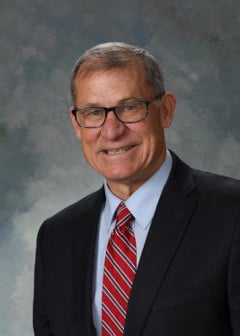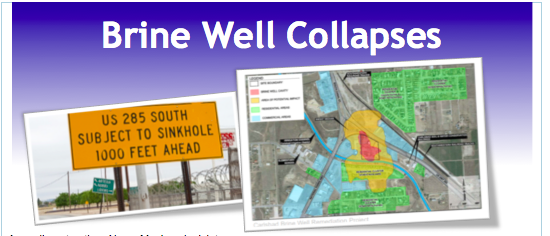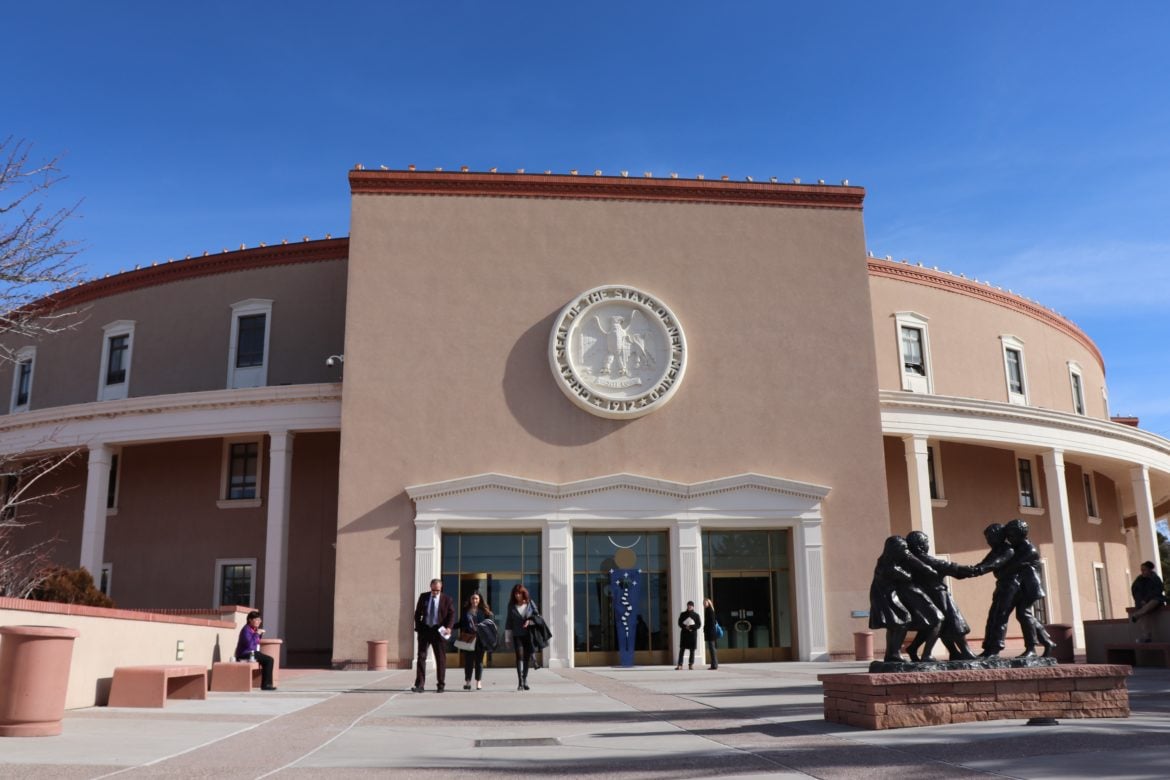The methane hotspot in the northwest. The town of Mesquite, where residents worry about air quality while living adjacent to Helena Chemical, in the south. Albuquerque’s South Valley and its air quality concerns. Proponents of the Environmental Review Act, HB 206, have a list of places where people and the environment could be better protected if the state had the environmental assessment tools it lays out. The bill bogged down in four hours of questions and public comment during its first committee hearing before the House Energy, Environment and Natural Resources Committee on a Saturday in January. It emerged without a recommendation.
Rep. Matthew McQueen, D-Galisteo, who chairs that committee, said, “I support the concept, but we have to be cautious and make sure we get it right.”
Representatives from mining companies, oil and gas companies, and economic development organizations flooded the committee room with concerns. Chief among them are that these rules would add another round of paperwork that will slow down business. Some think the uncertainty and delays would deter companies from starting in or moving to New Mexico, stalling out efforts to diversify the economy from its dependence on oil and gas.
The bill aims to fill in gaps in federal laws that require environmental reviews without doubling up on those laws, demand more public notice, and study cumulative impacts to an area. It offers tiered approaches: a nine-question environmental assessment to offer faster, easier examination of a project, and an environmental impact statement for projects likely to have more significant impacts on surrounding land, air, water, minerals, flora, and fauna, affect noise levels or objects of historic or cultural significance. Much of its implementation would be left to state agencies.
It also requires consulting tribes on projects within 15 miles of tribal land to steer from cultural resources and sensitive areas. Only projects that cost more than $2 million would qualify, though spurring “public controversy” could prompt a state agency to ask for an assessment. It wouldn’t apply to anything that already exists, but if a permit changes, it could be open to review.
“It’s closing a giant hole,” said Judy Calman, staff attorney with NM Wilderness Alliance. Calman has been working with Rep. Gail Chasey, D-Albuquerque, on the legislation, since 2012. Calman recalls that Chasey’s interest stemmed from environmental justice concerns and she carried similar legislation in 2009 and 2013. Much of Calman’s work is on the federal version of this law, and her interest in it stemmed from hoping to see similar environmental reviews applied evenly across New Mexico, regardless of the checkerboard of land ownership.

The bill is the result of a year of stakeholder meetings and ongoing conversations, Calman says. Just between the bill’s introduction on Jan. 14 and its first hearing on Feb. 2, 68 changes were made to it. Even in exiting its first committee without a favorable review, it’s already gotten farther than previous iterations of the bill.
“It looks scary on paper to industry,” Calman said, referencing the National Environmental Policy Act, which requires notoriously long environmental reviews: “I think NEPA scares people and they think it’ll be just like NEPA.”
The hope is to find something of a balance. In areas already deeply impacted by an industry, like oil and gas, permits could slide through for one more well because it wouldn’t significantly alter that landscape. But it would try to prevent the clusters of industrial activity that can deteriorate local air quality through their cumulative effects.
“This bill would, in our opinion, duplicate and make even more complex the environmental reviews already underway,” a lobbyist for Freeport-McMoRan, which operates two mine sites, said during the committee meeting.
Testimony followed from an XTO Energy lobbyist who said this would further swamp already full workloads for the agencies tasked with permitting the oil and gas industry. A Chevron lobbyist echoed that it’ll put New Mexico at a disadvantage for development in the Permian Basin, and companies will drill in Texas instead. Others challenged the legislation as setting up a parallel track in state agencies, which could produce different decisions and confuse the issue. One questioned its constitutionality. A representative from Marathon Oil pointed out that the company spent $300 million drilling wells in New Mexico last year, and had every intention of drilling as much this year, but “this bill would render all of our state acreage uneconomical.”
The Independent Petroleum Association Executive Director Jim Winchester said the “little oil” companies he represents, the equivalent of mom-and-pop-shops, were concerned they couldn’t absorb the price tag and don’t have the option to move out of state; the option would be to close. Between this and talk of methane rules and royalty or tax increases, Winchester said, “My small operators are scared to death.”
The New Mexico Association of Counties questioned how counties would shoulder the costs of this “cumbersome” process. The Farm and Livestock Bureau’s Matthew Gonzales said it could impair value-added businesses and add costs to farmers they couldn’t pass on to consumers, and “if you can’t afford it, you’re just going to go out of business.”
When Joe Farr, with Duke City Commercial LLC, who also leads government affairs committee for Albuquerque Economic Development, started working in Albuquerque five years ago — he’d lived there much longer, but only just took over a local real estate office — he scanned the market and said he saw it stagnating. Only last year did the unemployment rate dip below 5 percent for the first time since 2008.
“Albuquerque is just back to a level of jobs where we were when the recession hit. It took us 10 years,” he said. “Do we want to slow that progress down?”
Developers and businesses go where it’s easy and makes sense to build, he said. This bill will add a layer of complications and uncertainty that’ll repel companies in an already sluggish statewide economy. The sluggishness can be blamed on New Mexico’s over-dependence on oil and gas, and he doesn’t see this law as helping the state turn that ship.
“Nobody wants to take the risk when they know Albuquerque and New Mexico aren’t growing as fast as other areas,” he said. “If that’s the case, and we make it even harder, they’re going to go where it’s easier, cheaper, and growing faster.”
Rep. James Strickler, R-Farmington, said he’d never seen so much opposition “from every group known to man” in the years he’s worked as a lawmaker and called the bill “unworkable” during the committee meeting.

“This is a job killer, that’s all it is,” he said.
Those in favor have a very different list of concerns.
“I respectfully suggest that business that cannot prove no harm go somewhere else,” a Placitas resident said during the committee meeting.
Conroy Chino, registered lobbyist for pueblos of Acoma and Taos, said the option to protect areas of cultural significance led the pueblos to support the bill. He also spoke to quash any belief that tribes will weigh-in on every project, and, “to remind the committee that tribes have been in New Mexico for thousands of years, long before any county, any city.”
The brine well in Carlsbad expected to take $40 million in repairs to prevent a sinkhole from opening in the southern end of town, taking out homes, businesses, a highway interchange, and part of the rail line, came up as a cost of not passing a law like this.

“There’s been a lot of discussion about money,” said Joe Zupan, with Amigos Bravos. “The Carlsbad brine well is an example of why it’s a lot less expensive to head trouble off at the pass instead of try to go out and fix it afterwards, especially if it’s done with taxpayer dollars.”
Even James Kenney, the secretary-designate for the environment department, spoke in favor of the collaborative effort behind this bill. “I would just implore those in opposition to think about their social license to operate in the state, and to question whether or not they’re driving us toward more regulations,” he said.

“Economic development and jobs is really important, and we also want these things to be moving forward, but we want them to be completed in a fashion that protect the environment so we can have these resources for generations to enjoy,” Rep. Georgene Louis, D-Albuquerque, said during the hearing—Chasey was unable to attend, and Louis answered questions in her place. “We end up spending millions of dollars on clean-up when we could be proactive. This not only affects our environment, but it affects our citizens’ health.”
The bill is still awaiting a second committee hearing in State Government, Elections and Indian Affairs Committee, chaired by Louis, who will schedule it when its latest revisions have been finished.
